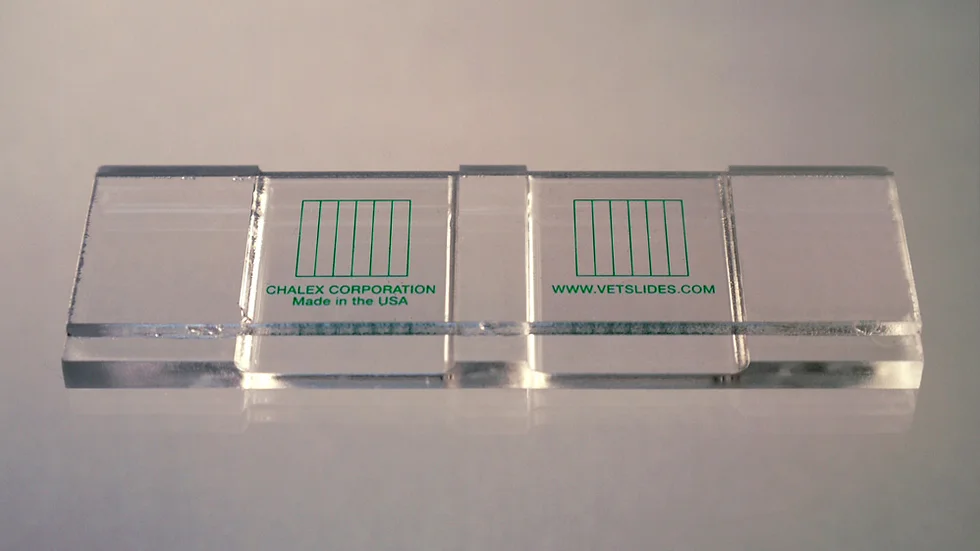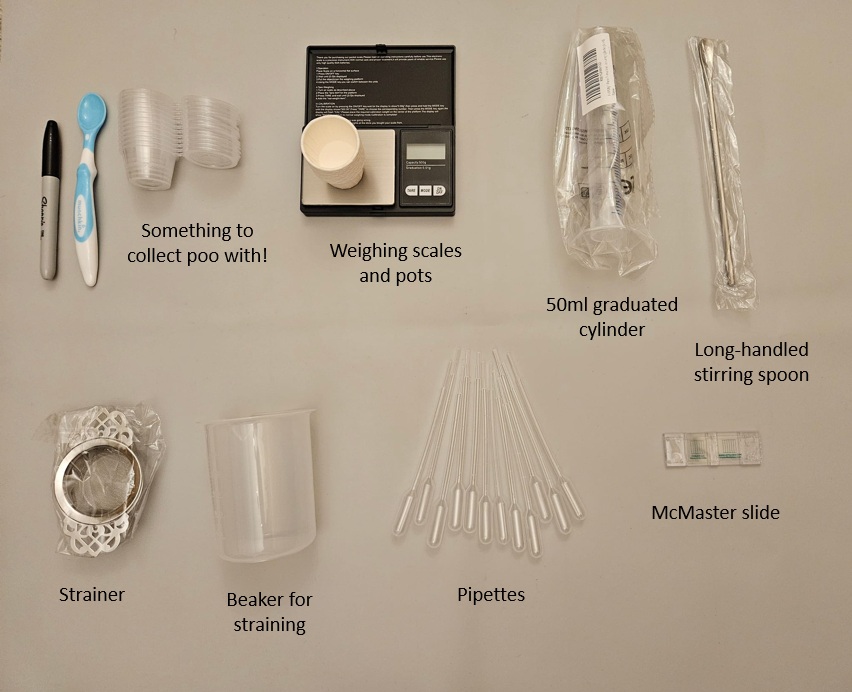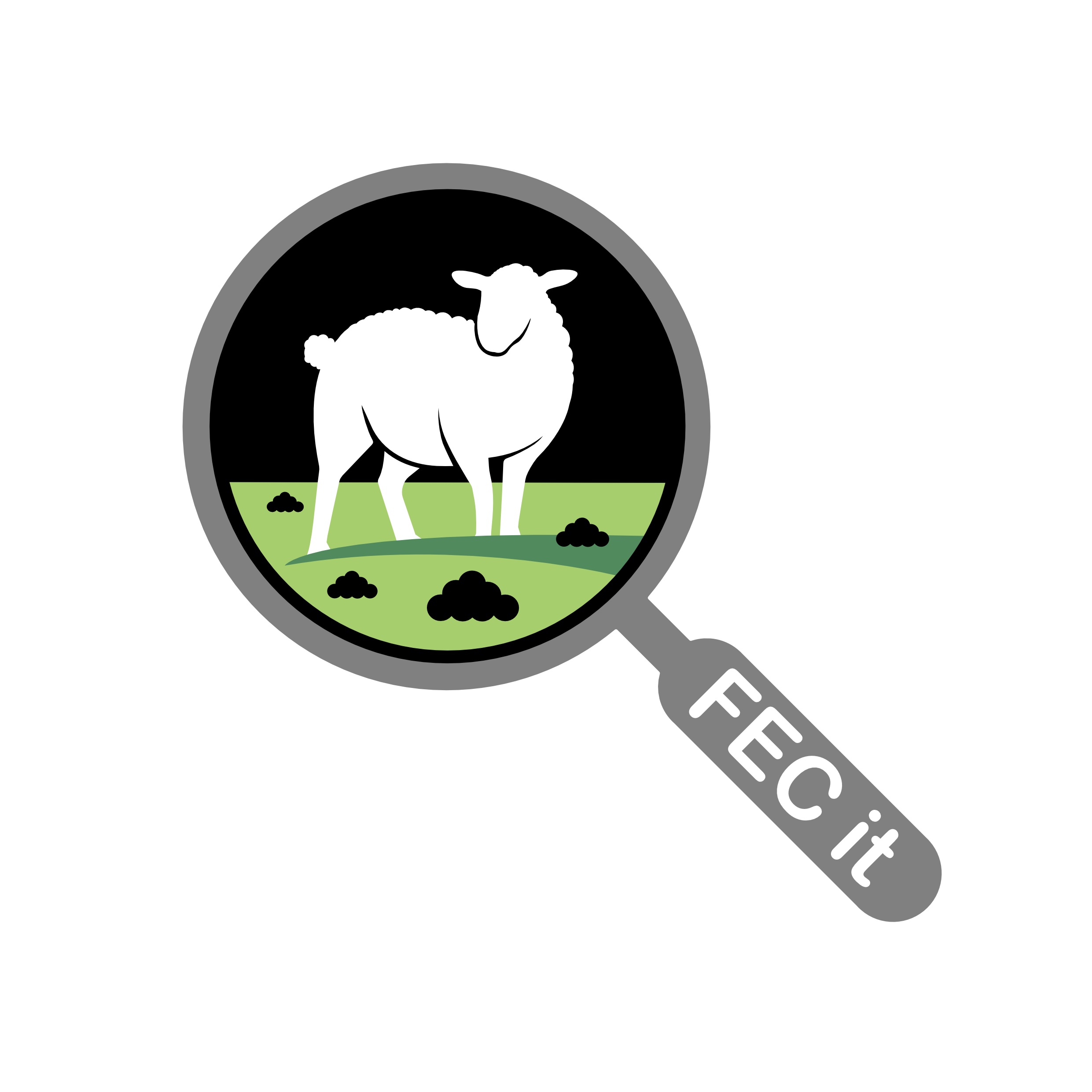Equipment required
To carry out faecal egg counts at home or at your place of work you will need the following equipment:
- Microscope
- McMaster slide
- Flotation solution
- Graduated cylinder
- Strainer and beaker
- Pipettes
Microscopes
Microscopes vary wildly in price and you can get by with a monocular scope as well as a binocular scope – it just depends whether you want to use one eye or two!
It is vital, however, that your microscope is capable of 40x and 100x magnification and that it has a mechanical stage, or you will not be able to navigate the slide easily.
Sometimes 40x is referred to as 4x and 100x as 10x – this is because with a compound microscope the power of the lens is also multiplied by the power of the eyepiece (typically 10x).

McMaster slide
There are a number of different methods for carrying out faecal egg counts. The most common and efficient way to obtain faecal egg counts for livestock, equines and many other animals is to use the Modified McMaster Test.
This is a flotation test that separates parasite eggs from debris based on their density. By using a dense flotation solution, the eggs float to the surface of the counting chamber.

The slides are calibrated to hold an exact amount of solution. When the correct amount of faecal matter and solution is prepared and injected into the slide, reading the number of eggs showing in the grids enables us to calculate the eggs per gram (EPG) in the prepared sample.
Beware of purchasing slides from sources that cannot guarantee accuracy. At FEC It, we have tried a number of different slides and always come back to the original manufacturer – Chalex. We also recommend the coloured grid as it is much easier to read the slide accurately.
Look after your slide as you would a pair of glasses – it will scratch if not stored correctly and will encrust if not cleaned after use. There is no reason why one slide won’t last years if it is looked after.
Flotation solution
There are many different types of flotation solution and it is not necessary to purchase a commercially-prepared solution. Your aim is to prepare a solution that is denser than the eggs you are looking to float. Most parasite eggs have a relative density (specific gravity) of between 1.05 and approximately 1.22. By creating a solution with a specific gravity of over 1.25, we can float most eggs, including tapeworm. You are taught how to prepare an easy flotation solution in our workshops.
Other equipment required

Although you can manage without precision weighing scales (by using displacement), those who have spent any amount of time fishing poo back out of a cylinder will agree that weighing is easier! Using waxed pots also gives you the opportunity to mix the sample well before adding to the solution.
Approximate cost
- Microscope – from £160 for one with mechanical stage (using discounts negotiated for those attending workshops). Without discounts – approx £195.
- McMaster slide – £30+ (false economy to buy cheaper in our opinion)
- Other items can be bought on Amazon and eBay
- Starter kits, which include everything in the photo above plus a 500ml wash bottle, are available at workshops for £45. After 1st April, the cost of kits will be rising to £50. All starter kits include a green grid Chalex McMaster slide.
It is therefore possible to set yourself up with a good quality microscope, and all the kit, for just over £200 (using discounts). Ongoing costs would only be for more flotation solution (pennies), waxed pots and pipettes.
In our opinion, it is important to not only weigh up the financial benefits of doing your own faecal egg counts, but also consider the peace of mind and control that it gives you. That is hard to quantify.
